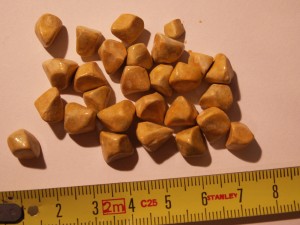Pathogens and Chloride
Viruses and other pathogens tend to “pull” chlorine out of circulation, resulting in the inability for the stomach to draw chlorine to make stomach acid.
Dr. Emmanuel Revici documented chloride loss getting bound to double bonds of unsaturated fatty acids in pathogenic cells.
Persistent chloride loss results in insufficient chloride available to make stomach acid, hence the normal loss of stomach acid resulting from pathogenic or other stress.
This deficiency eventually disables stomach acid production, and indirectly clogs the bile path. Finally, chlorine deficiency results in systemic lymph and liver toxicity.
Toxin Accumulation
Individuals with viral, and cell wall deficient, pathogens often exhibit an absence of stomach acid due to chronic imbalance in chlorine metabolism.
Long term chlorine deficiency causes liver congestion, and degeneration resulting from systemic toxin accumulation.
With optimal digestion, acid, exiting the stomach mixes with alkali bile. Insufficient stomach acid limits bile release, and interferes with body-wide detoxification.
The mix separates food molecules into biologically active charged particles called ions, which the body uses.
The release of bile enables the body to “eliminate” the toxins processed by the liver in feces. When the bile path experiences insufficient release, because of deficient stomach acid, inhibited toxin release enables accumulation.
Stomach acid is essential to detoxification. An absence of stomach acid prevents the liver from releasing bile, which inhibits bile flow, which in turn prevents the entire liver and lymphatic system from releasing stored toxins.
If unaddressed, gall and liver stones develop from resulting in physical blockage, as toxins condense into solid masses.
Deplete Stomach Acid
When stomach acid is deplete, there are three unfortunate results:
- Nutrients are not absorbed;
- Unfriendly organisms flourish in the gut further disrupting digestive health;
- The liver refrains from releasing alkali bile to avoid burning the gut.
Indicators for inadequate stomach acid are:
- Belching;
- Digestion which stalls in the stomach;
- Heartburn accompanied by belching or upper GI bloating or gas;
- Chronic constipation or diarrhea
Over time, the combined absence of digestion bile release causes liver toxins to accumulate, and finally health degenerates due to both malnutrition and toxins. Chronic esophagus irritation can lead to cancer.
